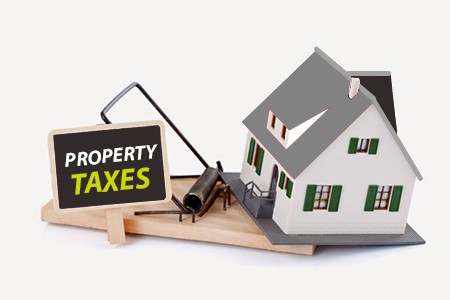What are taxes involved in selling real estate property in the Philippines?

What are taxes involved in selling real estate property in the Philippines?
Selling a real estate property in the Philippines can be a complex process, especially when it comes to understanding the tax implications. As a seller, it is important to be aware of the different taxes involved in the transaction to avoid any potential legal and financial issues. In this blog, we will discuss the various taxes involved in selling real estate property in the Philippines.
Capital Gains Tax
The Capital Gains Tax (CGT) is a tax imposed on the profit earned from selling a property. In the Philippines, the CGT rate is currently set at 6% of the gross selling price or fair market value (whichever is higher). The gross selling price refers to the total amount received by the seller from the sale, while the fair market value is determined by the Bureau of Internal Revenue (BIR). The CGT must be paid within 30 days from the date of the sale and can be done at the nearest BIR office.
Documentary Stamp Tax
The Documentary Stamp Tax (DST) is a tax imposed on documents, instruments, loan agreements, and papers evidencing the sale or transfer of real estate property. The DST rate in the Philippines is currently set at 1.5% of the selling price or fair market value of the property, whichever is higher. The DST must be paid within five days from the date of the sale and can be done at the nearest BIR office.
Transfer Tax
The Transfer Tax (TT) is a tax imposed on the transfer of ownership of real property. The TT rate in the Philippines varies from province to province but is generally between 0.5% to 0.75% of the selling price or fair market value of the property. The TT must be paid within 60 days from the date of the sale and can be done at the local treasurer's office of the city or municipality where the property is located.
Value Added Tax
Value Added Tax (VAT) is a tax imposed on the sale of goods and services, including the sale of real estate property. If the seller is registered under the VAT system and the property being sold is a commercial property, then the seller must pay a VAT of 12% on the gross selling price. If the property being sold is a residential property, then the sale is VAT-exempt. It is important to note that if the seller is not registered under the VAT system, then VAT is not applicable.
Real Property Tax
Real Property Tax (RPT) is an annual tax imposed on real estate property in the Philippines. The RPT rate varies from province to province and is generally between 1% to 2% of the assessed value of the property. The assessed value is determined by the local assessor's office and is based on the fair market value of the property. The RPT must be paid annually and can be done at the local treasurer's office of the city or municipality where the property is located.
In summary, selling a real estate property in the Philippines involves several taxes such as Capital Gains Tax, Documentary Stamp Tax, Transfer Tax, Value Added Tax, and Real Property Tax. As a seller, it is important to be aware of these taxes to avoid any potential legal and financial issues. It is recommended to seek the advice of a tax professional to ensure compliance with all tax requirements.
"About the Author: Samuel Lao is a Real Estate Broker with 14 years of experience in the field. He is a Past National President of the Philippines Association of Real Estate Board. He specializes in Real Estate Investment, Commercial & Industrial Real Estate, Property & Asset Management, and Real Estate Finance & Mortgage. For Business Meetings, contact him via WhatsApp at +639173236123 or laosamuel@yahoo.com, or visit his website at www.phmls.com"
Tags: Property Tax Taxes Real Estate Tax










